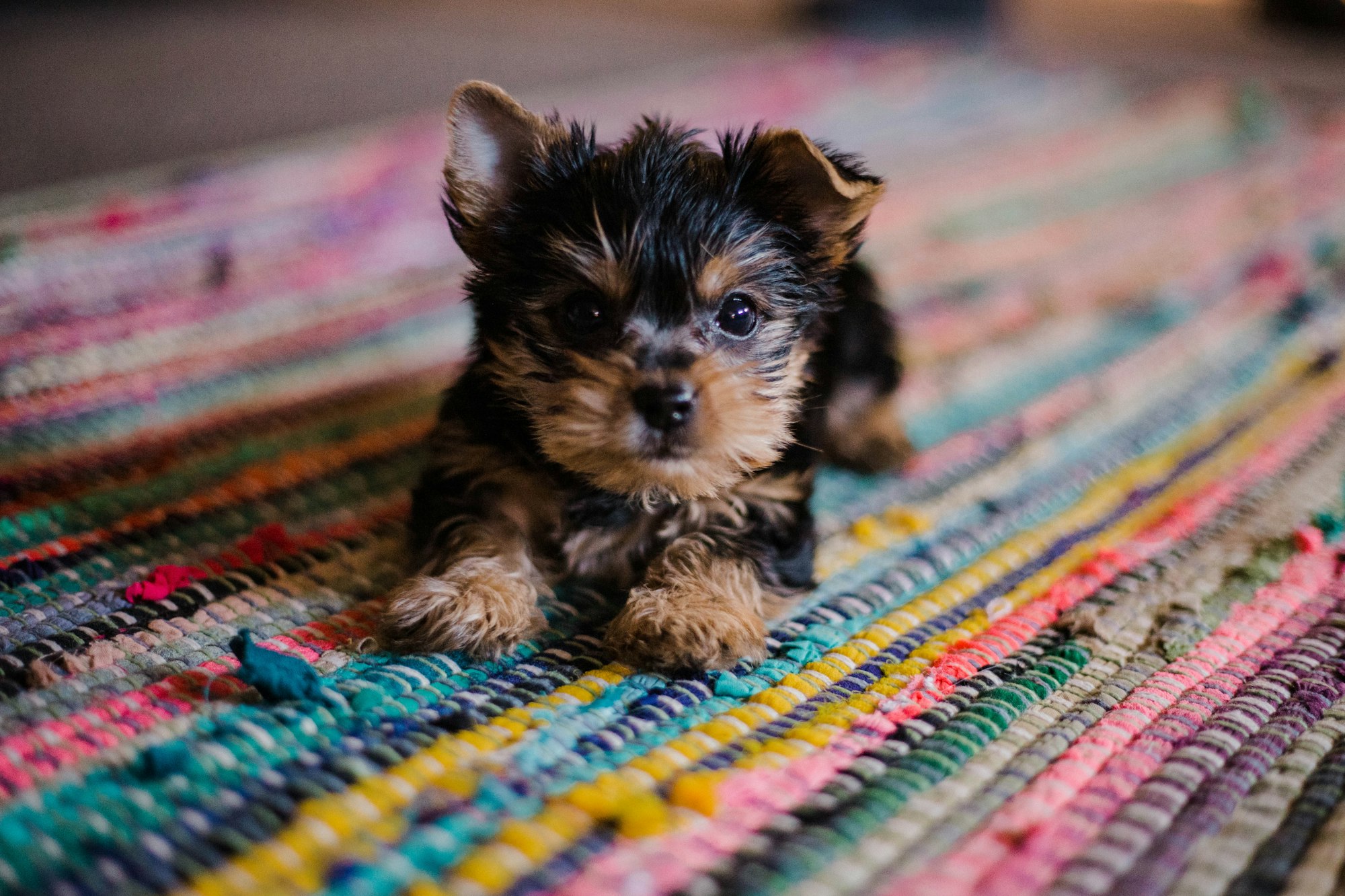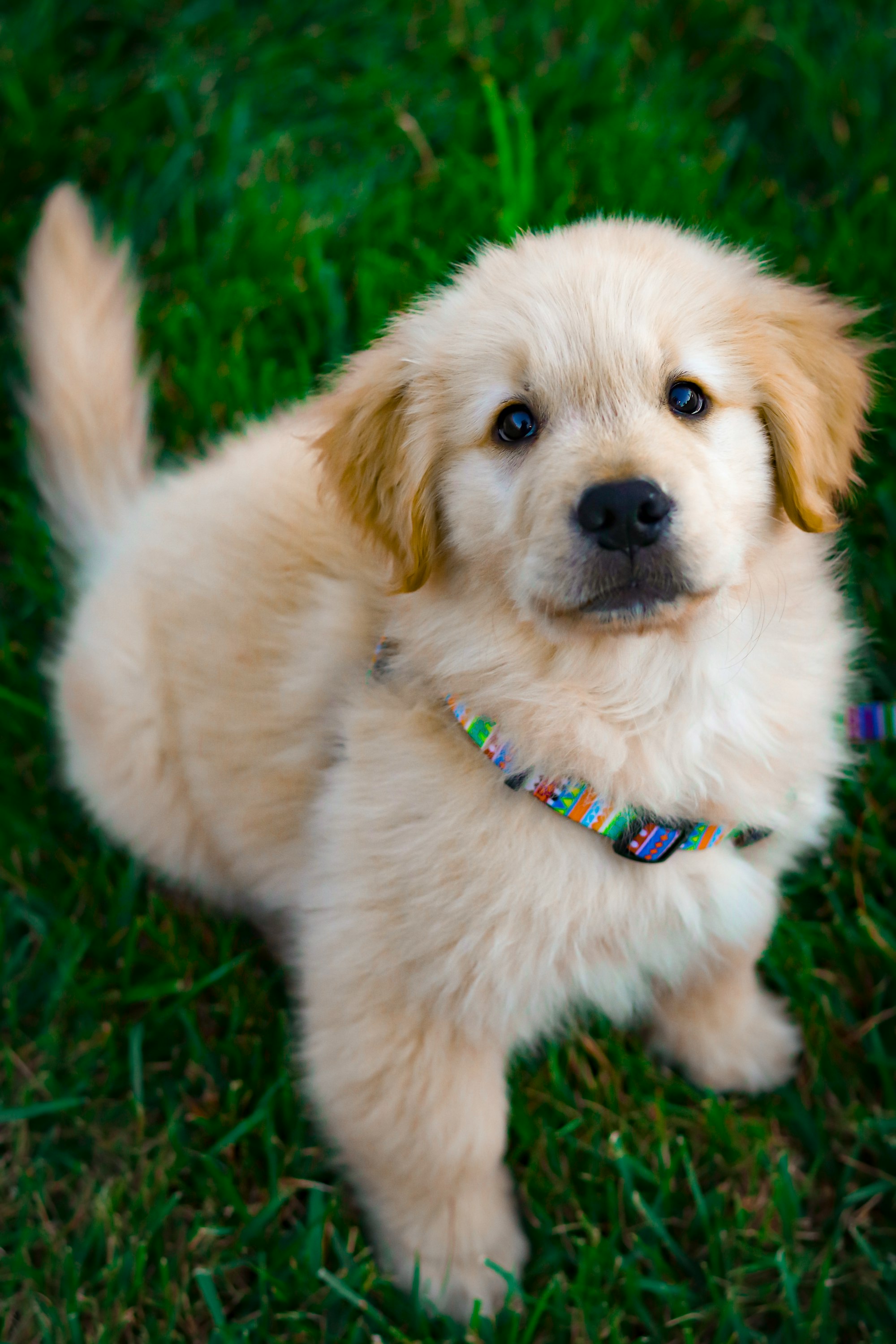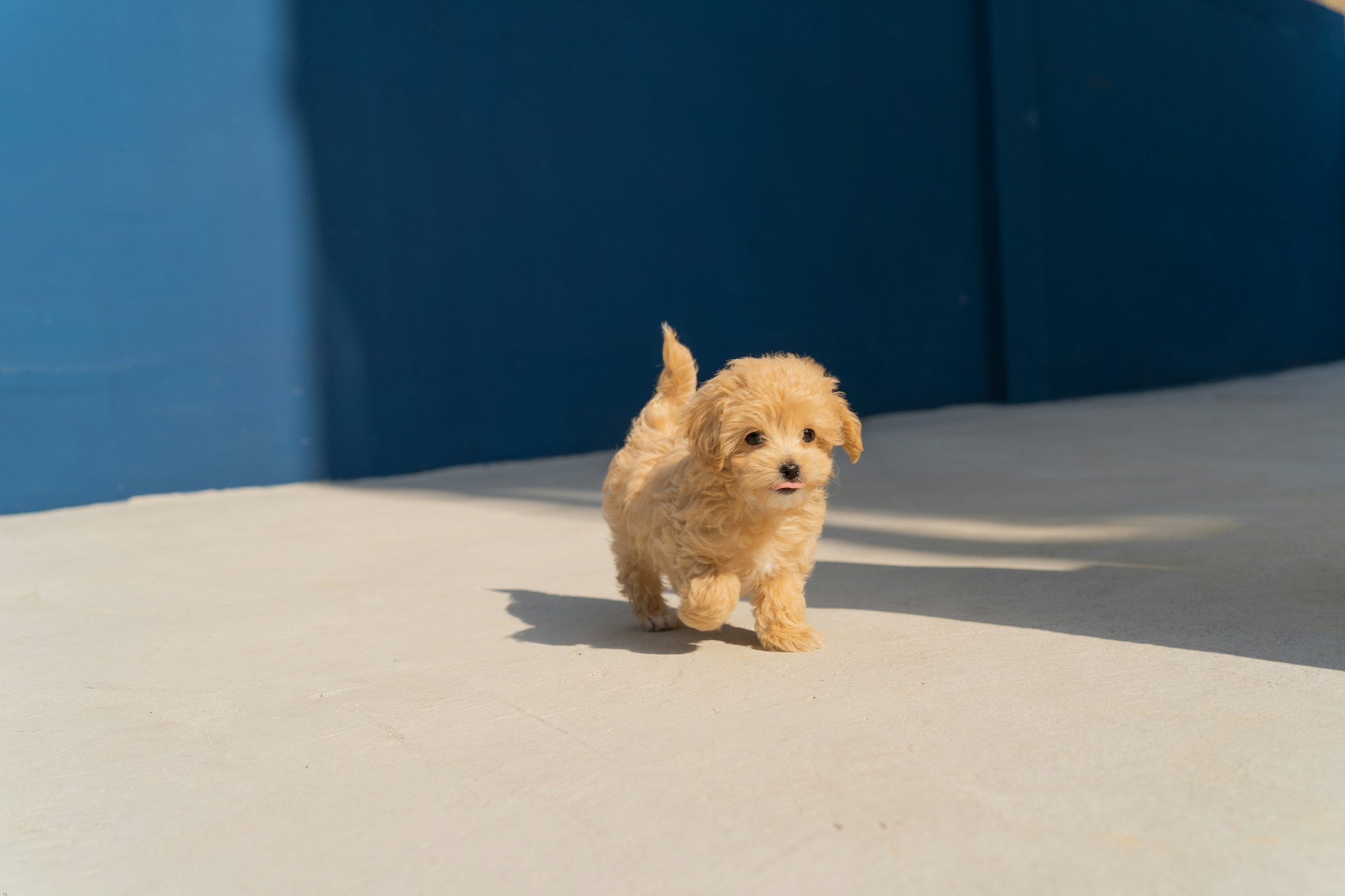Imagine walking through the park on a crisp morning, when suddenly, you hear the faintest whimper. Hidden beneath a bush, you stumble upon an unexpected discovery: a tiny, shivering newborn puppy. What would you do? The impulse to swoop the fragile creature up in your arms and save the day can be overpowering. But there's more to it than just warm cuddles and puppy eyes. If you ever find yourself in such a situation, here are some top tips on "What to Do if You Find a Newborn Puppy.

The Initial Moments: Safety First
Before anything else, ensure that the immediate environment is safe for both you and the puppy. Is there a busy road nearby? Any signs of predators or other threats? Remember, the safety of the puppy—and yourself—comes first.
Newborn Puppy Health: Key Indicators
When you gently pick the puppy up, observe a few critical health indicators. Are they responsive? Do they have a healthy pink color in their gums? How are their hydration levels? One quick test is to lightly pinch the skin on the back of their neck; if it returns to its position quickly, they're likely hydrated. If it stays tented, they might need water.
Orphaned or Just Left Behind?
Now, here's a twist in our story. Sometimes, the mother might be nearby. She could be hunting for food or maybe scared off temporarily. Wait from a distance to see if the mother returns. If she doesn’t return after a couple of hours, then you may need to intervene.
Feeding the Newborn Puppy
When it comes to newborn puppy feeding, it's crucial to remember that cow's milk or human baby formula can be harmful. Puppy-specific milk replacers are the best option. They are specially formulated to meet the nutritional needs of puppies. Feed them using a small bottle or syringe, and always consult with a vet for the right quantity.
Ensuring Newborn Puppy Warmth
A cold environment can be fatal for a newborn puppy. At this tender age, they cannot regulate their body temperature. Use a warm water bottle wrapped in a towel, or heating pads set on low, to offer a cozy nest. But be cautious; overheating can be just as dangerous. A snug, warm touch, rather than hot, is what you're aiming for.
Seek Expert Advice
Always consult with a veterinarian or a local puppy rescue group. They can guide you on health checks, vaccinations, and the next steps. They're the experts, after all.
Puppy's First 24 Hours
The first day and night can be critical. Monitor the puppy closely for signs of distress. Keep a close eye on their puppy emergency care needs. Feed them at regular intervals, ensure they stay warm, and provide a safe space free from hazards.
Beyond Immediate Care
Alright, our little hero is now safe and sound, warm, and fed. But what's next in our story? If you're planning on adopting the puppy, prepare for a rollercoaster of responsibilities. Potty training, socialization, and more feeding tips await. If not, seek a loving home or consider reaching out to a reputable rescue.
Puppy Socialization: The Foundations of a Happy Dog
Having ensured the immediate safety and health of the little furball, it's time to look to the future. If you've ever seen an older dog bark ferociously at a harmless object or act fearfully in everyday situations, you've seen the results of inadequate socialization.
The Golden Window of Puppy Socialization
Most experts believe that there's a "golden window" for puppy socialization, which closes around 14-16 weeks. During this period, puppies are most receptive to new experiences, sights, sounds, and smells. It's essential to give them positive experiences with as many different stimuli as possible.
Meeting New Friends: Both Furry and Human
Introduce your puppy to different types of people, from kids to the elderly, ensuring all interactions are positive. Use treats and praise to reinforce these happy encounters. Also, let them meet other vaccinated and friendly dogs. Social play with other pups is a fantastic way for them to learn doggie manners.
Adventures at Home and Beyond
Expose your puppy to various household noises: the vacuum cleaner, washing machine, doorbell, etc. Play sounds of thunderstorms or fireworks softly in the background and gradually increase the volume over days, rewarding the pup for calm behavior. Take them on car rides, visit different types of environments, and walk on various surfaces like grass, tiles, and gravel.
Training Basics: More than Just Tricks
Training isn't just about teaching your pup to sit or fetch. It's about building a bond of trust and understanding. Start with the basics: sit, stay, come, and heel. These commands aren't just for show; they can be life-saving in certain situations. Plus, training sessions are a great mental exercise for the pup.

Long-Term Commitment: A Lifetime of Care and Love
Finding and rescuing a newborn puppy isn't just about the immediate thrill of saving a life. It's a long-term commitment, sometimes stretching over a decade or more.
Regular Vet Visits
Like human babies, puppies need regular check-ups. Puppy emergency care isn't the end; routine visits can prevent bigger health problems down the road. Vaccinations, de-worming, flea and tick treatments, and neutering are some of the things you'll need to discuss with your vet.
Nutrition Matters
Diet plays a pivotal role in a dog's life. As they grow, their nutritional needs change. Always ensure you're feeding them the right kind of food for their age, size, and health requirements. Treats are lovely, but remember, moderation is key!
Love, Attention, and Play
Lastly, but most importantly, shower them with love. Play with them, take them for walks, and ensure they get enough physical and mental stimulation. Toys, puzzle games, and interactive play sessions can be both fun and enriching for them.
The Challenges Ahead: The Road Less Travelled
Sure, those puppy eyes and playful antics melt your heart, but raising a pup isn’t all sunshine and rainbows. As you journey through this adventure, it’s essential to be prepared for the inevitable hurdles that come your way.
Teething Troubles
Much like human babies, puppies go through a teething phase. This can mean your favorite shoes or the corner of your expensive couch might bear the brunt of their growing pains. Invest in chew toys that can provide relief to their sore gums. Not only does this protect your belongings, but it also ensures they’re gnawing on something safe.
The Night-time Whimpers
In the initial days, especially if separated early from their mother, puppies can get quite vocal at night. This is a combination of fear, loneliness, and the big, new world around them. A soft toy or a ticking clock near their bed can mimic the heartbeat of their siblings or mother, offering some comfort.
Potty Training Patience
Accidents will happen. And then they’ll happen again. Puppy potty training is a test of patience. Be consistent, set a routine, and reward them when they get it right. Remember, scolding after the fact is ineffective. Instead, interrupt them if you catch them in the act and then lead them to the appropriate spot.

Enrichment Activities: A World Full of Exploration
To raise a well-rounded dog, you need to think beyond just physical exercise. A mentally stimulated dog is a happy dog. Here are some ideas to keep that puppy brain buzzing:
Puzzle Toys
There are a plethora of dog toys in the market that challenge the mind. From toys that dispense treats when solved to intricate puzzles, there's something for every canine intellect level.
Obedience and Trick Training
Teaching your dog new commands or tricks isn't just a party trick. It challenges them mentally and reinforces the bond between you two. Celebrate small victories, and always use positive reinforcement.
New Experiences
Regularly introduce your puppy to new experiences. A trip to the beach, a hike in the mountains, or even a stroll in a bustling city center can be incredibly stimulating. New smells, sights, and sounds keep their senses sharp.
Growing Old Together: Cherishing the Sunset Years
As the vibrant hues of puppyhood fade, you'll notice the subtle transition to the golden years of your canine companion. This phase, often overlooked in the whirlwind journey of dog ownership, is equally deserving of attention, love, and care.
Recognizing the Signs of Aging
It's essential to note that dogs, especially larger breeds, age faster than we do. Their playful jumps may become less frequent, and their naps a tad longer. They might be slower to respond, and you may notice a bit of cloudiness in their eyes. These are all natural parts of the aging process, but they warrant adjustments in care.
Adjusting to Senior Dog Needs
Senior dog care is different from looking after a spry young pup. Their dietary needs shift, requiring food that's easier to digest and specially formulated for older dogs. Joint supplements can also be beneficial, as many dogs suffer from arthritis and related conditions in their later years.
Regular Health Checks
As dogs age, they become more susceptible to health issues like kidney problems, heart disease, and cancer. Regular vet visits become even more crucial. Early detection can make a world of difference in treatment and prognosis.
Providing Comfort
Consider investing in an orthopedic bed to cushion those aging joints. Ramps can help them access their favorite spots without straining themselves. And toys, though perhaps no longer the object of vigorous play, still offer comfort and a touch of familiarity.
Celebrating the Memories
While it's essential to cater to their physical needs, don't forget the emotional bond you share. Spend quality time together. Take leisurely walks, allowing them to set the pace. Reminisce about the adventures you've shared and create new memories, even if they're quieter than before.
Embracing the Inevitable: Saying Goodbye
The circle of life is a profound and inevitable process, one that every pet owner must confront eventually. This phase, often dreaded and spoken of in hushed tones, carries with it a weight of emotion, reflection, and acceptance.
Preparing for the Farewell
It's often said that the hardest part of having a pet is having to say goodbye. As the days go by, you may notice more evident signs of decline, be it in mobility, appetite, or general demeanor. While it's essential to provide comfort and care, it's equally crucial to emotionally prepare for the impending loss.
Quality over Quantity
At this stage, focus on the quality of life rather than its duration. Simple joys, like a patch of warm sunlight, a favorite treat, or the gentle touch of your hand, can bring immense comfort. Create a bucket list for your pup, no matter how small or big the items might be. It could be as straightforward as a car ride or a visit to a favorite park.
The Difficult Decision
Sometimes, for the sake of our beloved pets, we have to make the heart-wrenching decision of letting them go, especially if they're in pain or suffering. Consulting with your vet, understanding the quality of life, and weighing it against prolonging suffering is a personal and challenging journey. Remember, it's a final act of love, putting their comfort above our own emotions.
Mourning and Healing
Grief, when losing a beloved pet, is as profound as any other loss. Allow yourself to mourn. Celebrate the life shared, the memories created, and the lessons learned. Everyone heals at their own pace, and there's no right or wrong way to grieve.

A New Dawn: Keeping the Legacy Alive
The end of one story often paves the way for another. While the void left behind can never truly be filled, the heart has an incredible capacity to love again.
Memorializing Your Beloved
Consider creating a memorial or a tribute to honor your pet. Plant a tree in their favorite spot, create a scrapbook of memories, or even write a letter expressing all the things you've wanted to say. These acts not only provide closure but also celebrate the life and love shared.
Opening Your Heart Again
When the time is right, you might feel the pull to rescue or adopt another pet. It's not about replacing the old but about giving another soul a chance at love and a forever home. Remember, every pet has a unique personality and story; embrace the new journey while cherishing the old.
Moving Forward: A Life Forever Changed
The journey with a pet, particularly one you've rescued and nurtured from its earliest days, irrevocably changes you. As days turn into weeks and weeks into months, life without your beloved companion may feel alien. However, it's essential to recognize the transformation they've brought into your life and how their legacy can continue to inspire.
Lessons in Resilience
Pets, with their boundless enthusiasm and zest for life, teach us resilience. They bounce back from setbacks, whether it's a minor injury or a bout of illness, showcasing an innate ability to live in the present. This resilience, which they exhibit and instill in us, serves as a reminder to face life's challenges head-on, even in their absence.
Spreading the Message of Love
One of the most beautiful ways to honor your pet's memory is to spread the love you've experienced. Consider volunteering at local animal shelters, fostering pets in need, or even sharing your story to inspire others. By extending a helping hand, you not only keep your pet's legacy alive but also give other animals a chance at a better life.
The Healing Power of Community
Seek out others who have experienced similar losses. Pet bereavement groups, both online and offline, can offer a supportive environment where people understand the depth of your grief. Sharing stories, memories, and coping strategies can be incredibly therapeutic.
The Beauty of New Beginnings
While it might seem impossible now, there might come a day when your home resonates with the pitter-patter of new paws. Adopting or rescuing again isn't about forgetting the past but about honoring it. Every pet you bring into your life doesn't replace the previous one but adds a new chapter to your ongoing narrative.
Conclusion:
In the transformative journey of finding and nurturing a newborn puppy, we encounter immediate care challenges, the joys of growth, the lessons of aging, and the weight of farewells. From ensuring a puppy's health, feeding, and warmth, to navigating the energetic days of training and play, then transitioning to the reflective years of senior care, every phase imparts lessons in love, resilience, and compassion. The poignant end reminds us of life's fragility, but also its beauty. This narrative transcends pet care; it's a testament to the enduring human-animal bond, celebrating the memories made, the challenges faced, and the hope of new beginnings.
FAQs
1. What should I do immediately after finding a newborn puppy?
- Ensure the immediate safety of the puppy, check its health indicators like responsiveness and gum color, and wait for a while from a distance to see if the mother returns.
2. How do I feed a stray newborn puppy?
- Use puppy-specific milk replacers, avoiding cow's milk or human baby formula. Consult with a vet for the right quantity and feeding schedule.
3. How can I keep a newborn puppy warm?
- Use a warm water bottle wrapped in a towel or heating pads set on low to create a cozy environment.
4. When should I introduce the puppy to socialization and training?
- The "golden window" for puppy socialization is up to 14-16 weeks. Start basic training commands like sit, stay, and come early on to build a foundation.
5. How do I handle the teething phase of a puppy?
- Invest in chew toys to provide relief to their sore gums and protect your belongings.
6. What changes should I expect as my puppy grows older?
- Senior dogs may exhibit slower movements, longer nap times, and may have specific dietary and health needs. Regular vet check-ups become more crucial during their golden years.
7. How can I memorialize my pet after they pass away?
- Consider planting a tree, creating a scrapbook, or sharing their story to honor and celebrate their life.
8. How can I ensure the mental well-being of my puppy?
- Engage them with puzzle toys, introduce them to new experiences regularly, and ensure they have interactive play sessions.
9. When is it time to consider adopting or rescuing another pet after a loss?
- There's no set timeframe, but when you feel ready to offer love and a home to another pet, it can be a beautiful way to honor your previous pet's legacy.
10. What lessons can the journey with a rescued newborn puppy teach us?
- This journey imparts lessons in unconditional love, resilience, patience, and the beauty of life's unpredictabilities. It's a testament to the deep human-animal bond that transcends time.




